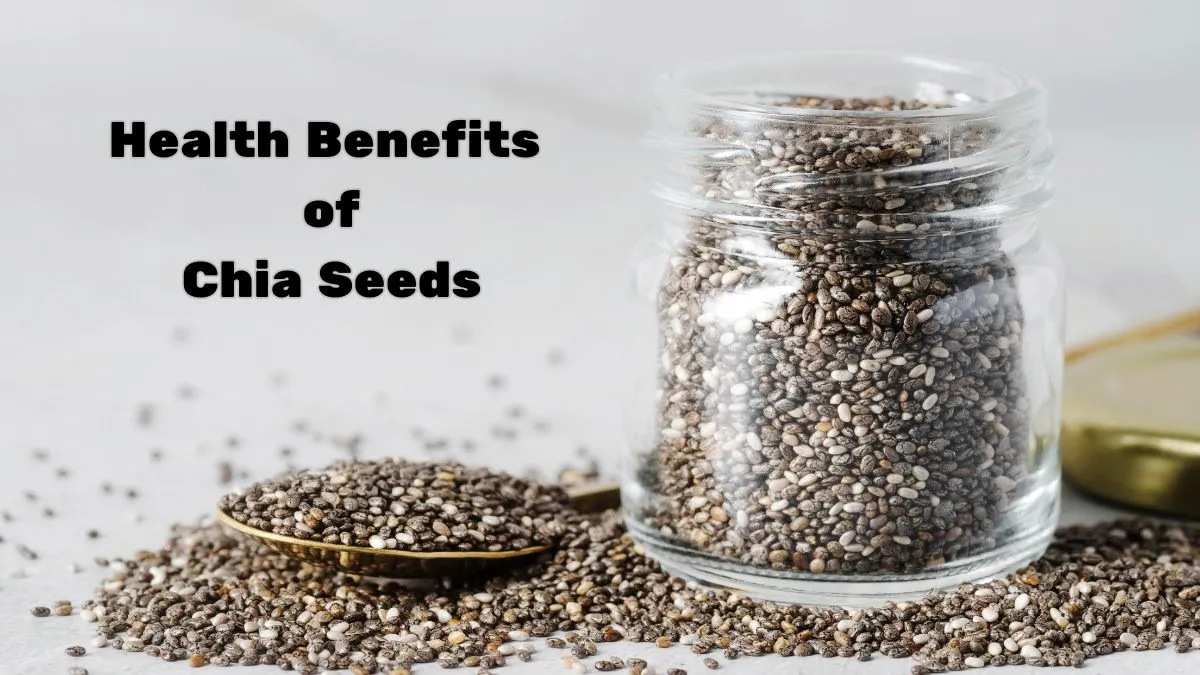
Chia seeds, once a staple of ancient Aztec and Mayan diets, have rightfully earned their place in the modern superfood pantheon. These tiny black and white seeds pack a colossal nutritional punch, offering benefits that span from digestive health to brain power. Whether mixed with yogurt, or blended into smoothies, or added to a creamy pudding, the versatility of chia seeds makes them a perfect addition to any diet. Incorporating them into your daily diet is one of the simplest yet most effective ways to boost your overall well-being. Let us discover how these small seeds can deliver big benefits, transforming your meals into nutrient-packed and wholesome delights.
Table of Content:-
What Are Chia Seeds?
Dr Archana Batra, Dietitian and Certified Diabetes Educator shares, “Chia seeds come from the Salvia hispanica plant, a member of the mint family native to Central America. They are known for their unique ability to absorb up to 10-12 times their weight in liquid, forming a gelatinous coating that is key to many of their health benefits.”
Nutritional Profile of Chia Seeds
Gram for gram, chia seeds are a nutritional powerhouse, providing a balanced mix of essential nutrients with very few calories, a PMC study supports this. Here is a breakdown for your easy understanding:
- Omega-3 Fatty Acids: Exceptionally high in alpha-linolenic acid (ALA), a plant-based Omega-3.
- Fibre: One of the richest whole-food sources of fibre, primarily insoluble fibre.
- Protein: Contains a good amount of high-quality protein with all nine essential amino acids.
- Minerals: Abundant in calcium, phosphorus, magnesium, and manganese.
Also Read: White Chia Seeds Vs Black Chia Seeds: Expert Explains The Differences Between The Two
Top Health Benefits of Chia Seeds
Most of us know chia seeds as a hydration and metabolic booster, but that is not it. These tiny seeds are a powerhouse of essential vitamins and minerals that make them a superfood. Here are some of the top health benefits of chia seeds shared by Dr Batra:
Supports Digestive Health: The high fibre content promotes gut regularity, feeds beneficial gut bacteria, and prevents constipation.
Aids in Weight Management: The combination of fibre and protein creates a feeling of satiety, helping to reduce overall calorie intake. Thus, chia seeds are great for weight loss.
Boosts Heart Health: The ALA Omega-3s have been shown to help lower blood pressure and reduce inflammation, contributing to cardiovascular wellness.
Aids in Metabolic Disorder: According to a study published in the journal Food Science and Nutrition, chia seeds are referred to as a therapeutic weapon in metabolic disorders.
Strengthens Bones: Rich in calcium, phosphorus, and magnesium, chia seeds are excellent for maintaining bone density and structure.
Stabilises Blood Sugar: The soluble fibre helps slow the conversion of carbohydrates into sugar, assisting in blood sugar regulation.
Also Read: Can Eating Chia Seeds Be Dangerous? Understanding the Risk of Throat Blockage
How to Use Chia Seeds
Chia seeds are incredibly versatile because they have a mild, neutral flavour. They can be consumed whole or ground. Here are some of the best ways to consume chia seeds, as shared by Dr Batra:
Chia Pudding: Soak seeds in milk (dairy or plant-based) overnight for a nutritious, jelly-like breakfast or dessert.
Smoothie Booster: Blend a tablespoon of seeds directly into your daily smoothie for added thickness and nutrition.
Topping: Sprinkle them over yogurt, oatmeal, or salads for an easy crunch.
Vegan Egg Substitute: Mix one tablespoon of chia seeds with three tablespoons of water and let sit for 5 minutes; this forms a gel that can replace one egg in baking.
Tips for Best Results
While chia seeds are very easy and effortless to add to your diet, still we asked Dr Batra to share some tips to maximise the benefits of chia seeds. Here are two suggestions that you can consider:
- Always consume chia seeds with plenty of water or a liquid of your choice.
- Since they absorb a significant amount of water, failing to hydrate sufficiently can lead to digestive discomfort.
- Start with a small amount (1 teaspoon) and gradually increase your intake to allow your digestive system to adjust to the high fibre content.
Conclusion
In a nutshell, these unassuming seeds are a must-have for a healthy diet. Their potent mix of fibre, protein, and Omega-3s makes them an easy and effective way to achieve a significant health upgrade.
Also watch this video
FAQ
How many chia seeds should I eat daily?
Ideally, 1 to 2 tablespoons or 25-30 grams of chia seeds can be consumed on a daily basis. This would provide the required nutrition without overwhelming your gut.Can chia seeds help control blood sugar levels?
Yes, chia seeds can help in diabetes management. These contain high soluble fiber content, which helps in slowing down sugar absorption and carbohydrate digestion, which prevents a sudden spike of glucose.Can chia seeds be added to hot foods or drinks?
Yes, chia seeds can be added to hot foods and beverages. You can add chia seeds to tea, soups, oatmeal and porridges.Are there any side effects of eating chia seeds?
Some people may experience discomfort after consuming chia seeds, primarily due to excessive consumption. The potential side-effects include digestive distress, choking and allergic reaction, to name a few.
How we keep this article up to date:
We work with experts and keep a close eye on the latest in health and wellness. Whenever there is a new research or helpful information, we update our articles with accurate and useful advice.
Current Version
Oct 08, 2025 10:00 IST
Modified By : Chanchal SengarOct 08, 2025 10:00 IST
Modified By : Chanchal SengarOct 08, 2025 10:00 IST
Published By : Chanchal Sengar